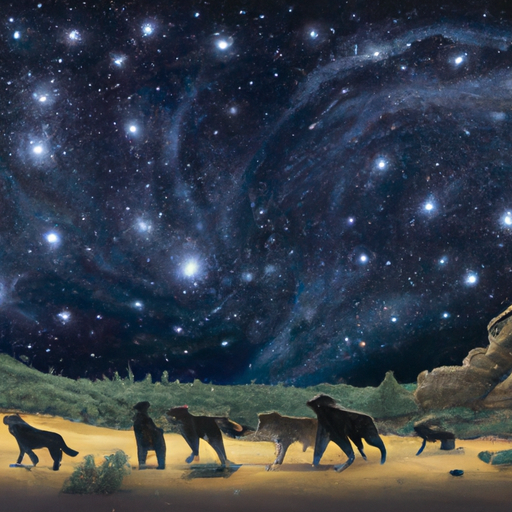Have you ever gazed into the eyes of your faithful canine companion and wondered, “Where do dogs come from?” This question has puzzled scientists, dog lovers, and curious minds alike for centuries. Today, we’ll take an in-depth look into the fascinating origins of man’s best friend, exploring their evolutionary journey, cultural significance, and the scientific breakthroughs that have helped unravel this mystery.
Table of Contents
- The Ancestral Origins of Dogs
- The Role of Selective Breeding
- Dogs in Ancient Cultures
- Scientific Discoveries in Canine Genetics
- Frequently Asked Questions
Key Takeaways
- Dogs evolved from an extinct species of wolves.
- Selective breeding played a crucial role in the variety of dog breeds we see today.
- Dogs were highly valued in ancient cultures.
- Advances in genetic research have provided further insights into the history and evolution of dogs.
The Ancestral Origins of Dogs
The story of where dogs come from begins around 40,000 years ago. The most widely accepted theory is that dogs evolved from an extinct species of wolves. It’s believed that these ancient wolves began to associate with humans, drawn to the scraps of food left behind by early hunter-gatherers. This interaction was mutually beneficial – humans gained a new line of defense against predators, while the wolves gained a reliable food source. Over time, these wolves evolved into a distinct species, forming what we now know as dogs.
Here’s an interesting piece that delves deeper into the evolution of dogs from wolves.
The Role of Selective Breeding
The myriad of dog breeds that we see today is a result of centuries of selective breeding. Early humans recognized the value in dogs with particular traits, such as strength, speed, or a keen sense of smell. They selectively bred these dogs, encouraging these traits to persist through generations. For instance, breeds like the Border Collie were developed for their herding ability, while the Bloodhound’s remarkable sense of smell made it an excellent tracker.
Selective breeding has also led to a vast array of physical differences among dog breeds. From the tiny Chihuahua to the towering Great Dane, this incredible diversity is a testament to the power of selective breeding. If you’re interested, you can find more about this on OneTopDog’s guide to dog breeds.
Dogs in Ancient Cultures
The domestication of dogs wasn’t just a survival strategy – it was a relationship that had profound cultural implications. Dogs were often considered sacred in ancient societies. For example, in ancient Egypt, dogs were revered and often featured in religious and cultural symbolism. The Egyptians even had a dog-headed god, Anubis, who was the deity of the underworld.
In ancient Rome, dogs symbolized loyalty and vigilance. They were often kept as pets and were frequently depicted in art and literature. If you’d like to learn more about dogs in ancient cultures, check out this article.
Scientific Discoveries in Canine Genetics
Modern science has provided us with unprecedented insights into the origins of dogs. Genetic research has revealed that all dogs, regardless of breed, share a common ancestry with the extinct wolves we discussed earlier. This genetic link confirms that dogs were indeed the first domesticated animal, predating the advent of farming.
Recent DNA studies have also suggested that dogs were domesticated independently in both Eastern and Western Eurasia, resulting in two distinct dog populations that later merged. This scientific paper provides a more detailed explanation.
For more insights into the world of canine genetics, you might want to visit OneTopDog’s section on dog genetics.
Frequently Asked Questions
- When were dogs first domesticated? Dogs were first domesticated approximately 40,000 years ago.
- Where were dogs first domesticated? Recent genetic evidence suggests that dogs were domesticated independently in both Eastern and Western Eurasia.
- How many dog breeds exist today? There are currently over 340 recognized dog breeds worldwide. However, this number does not include various mix breeds and regional variants.
- Are all dogs descendants of wolves? All dogs share a common ancestry with an extinct species of wolves, not the wolves we see today.
In conclusion, the journey of understanding where dogs come from is a fascinating tale of evolution, human survival, cultural symbolism, and scientific discovery. Our furry friends have been by our side for thousands of years, and as we continue to learn more about their origins, our appreciation for them only grows.



